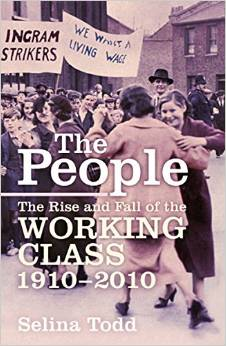HJ Harris (b.1903): Politics and Protest
‘I shall look forward to hearing whether you find my epistle worthy of consideration in your proposed Social History Early 20th Century’ (Harris, 04/05/78)
As an adult HJ has taken an active interest in politics and social conditions, evidenced by the fact that he has independently educated himself. He mentions the Myra Curtis report (Harris, 04/05/78) and how it had an effect on the way orphans were treated, but he would only have learnt about this after it actually happened.
‘I am glad you are going to consider my account of Social-Conditions in the pre-Myra Curtis Report days’ (Harris, 04/05/78)
You can read more about Myra Curtis Report and the effect on young people at http://www.childrenshomes.org.uk/NCH/Curtis.shtml
Although HJ does not directly discuss politics in his memoirs, he does make reference to a different class to him and how they treated him,
‘Anything else you would like to know about Social History in the early part of this century ask me. I can tell you. Workhouse life. Mental hospital life. Life as a tramp. Yes that’s been my experience. “On the knocker” Loitering with intent. Kind English People. They’d see you starve and show you all kinds of sympathy(except the proper sort)’. (Harris, 30/01/84)
HJ is aware of who is going to be reading his memoirs, and is mindful that what he writes will affect the readers,
‘There was much that I left unsaid, as I tried to keep to the 4 or 5 thousand words as you requested. Besides I would not be able to put it all in any interesting way, and would require someone to rephrase the story so that any melancholia I may be suffering from when recounting the past, did not impinge on the message and lesson , to students of Social History’. (Harris, 02/06/78)
HJ has a thirst for information about his childhood and society at the time because he was not given any information as a child which is what usually happens with working class families; telling stories of their life to each other. HJ delved into his childhood and society at the time and I suppose with self-education comes a sense of belonging.
HJ does say,
‘I regret there would be no happy ending, and things did not work out right in the end, as so many stories of adversity do’. (Harris 18/04/15)
But I think he was more successful than he appreciated. He eventually held a good job and bought his own house, however he states,
‘Today, I can truthfully say I am better off (on Social Security) than ever I’ve been in any other part of my life’. (Harris 03/05/78)
Bibliography
Burnett, J. Mayall. D. Vincent, D eds. The Autobiography of the Working Class: An Annotated Critical Biography 3 vols. Brighton: Harvester, 1984, 1987, 1989.
Harris, H.J. Autobiographical letters 197801984, TS, pp.13 (c5,000 words). Brunel University Library
The Children’s Homes. The Institutions that became home for Britain’s children and Young People. http://www.childrenshomes.org.uk/NCH/Curtis.shtml


Leave a Reply